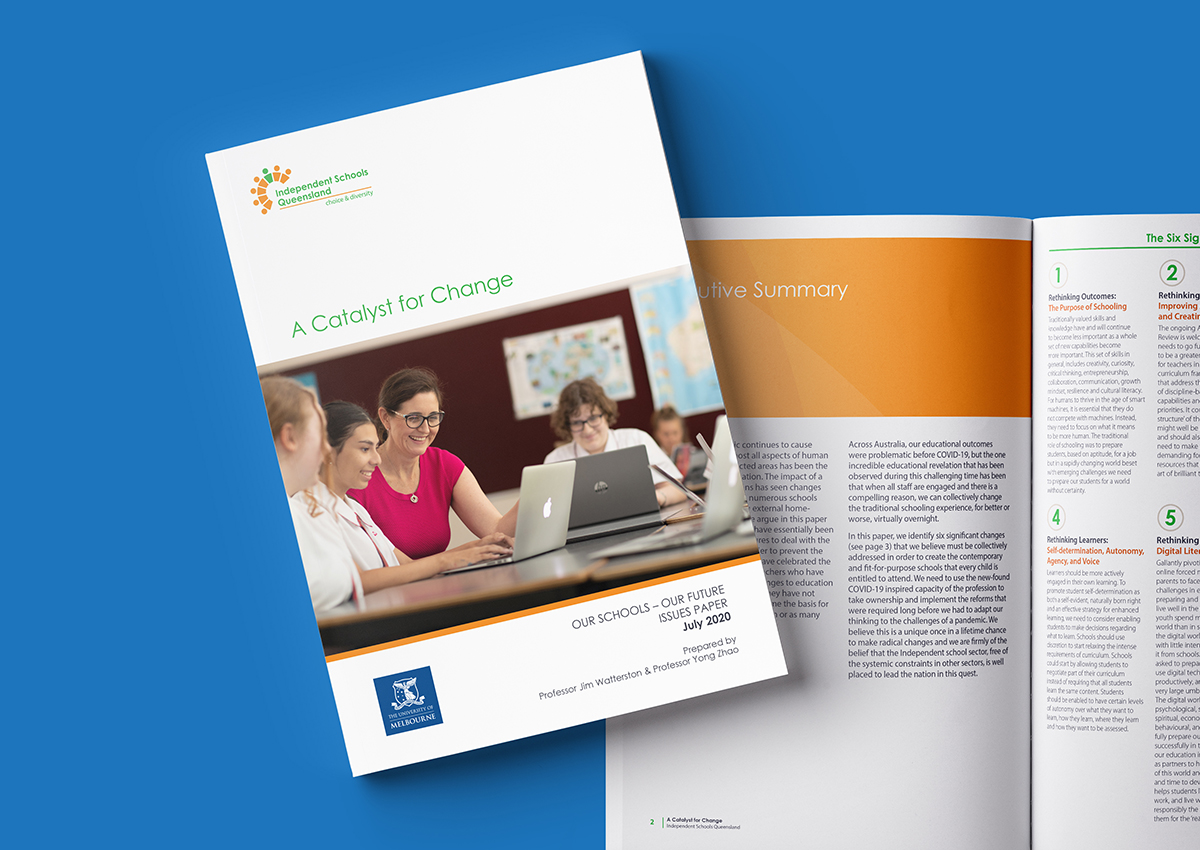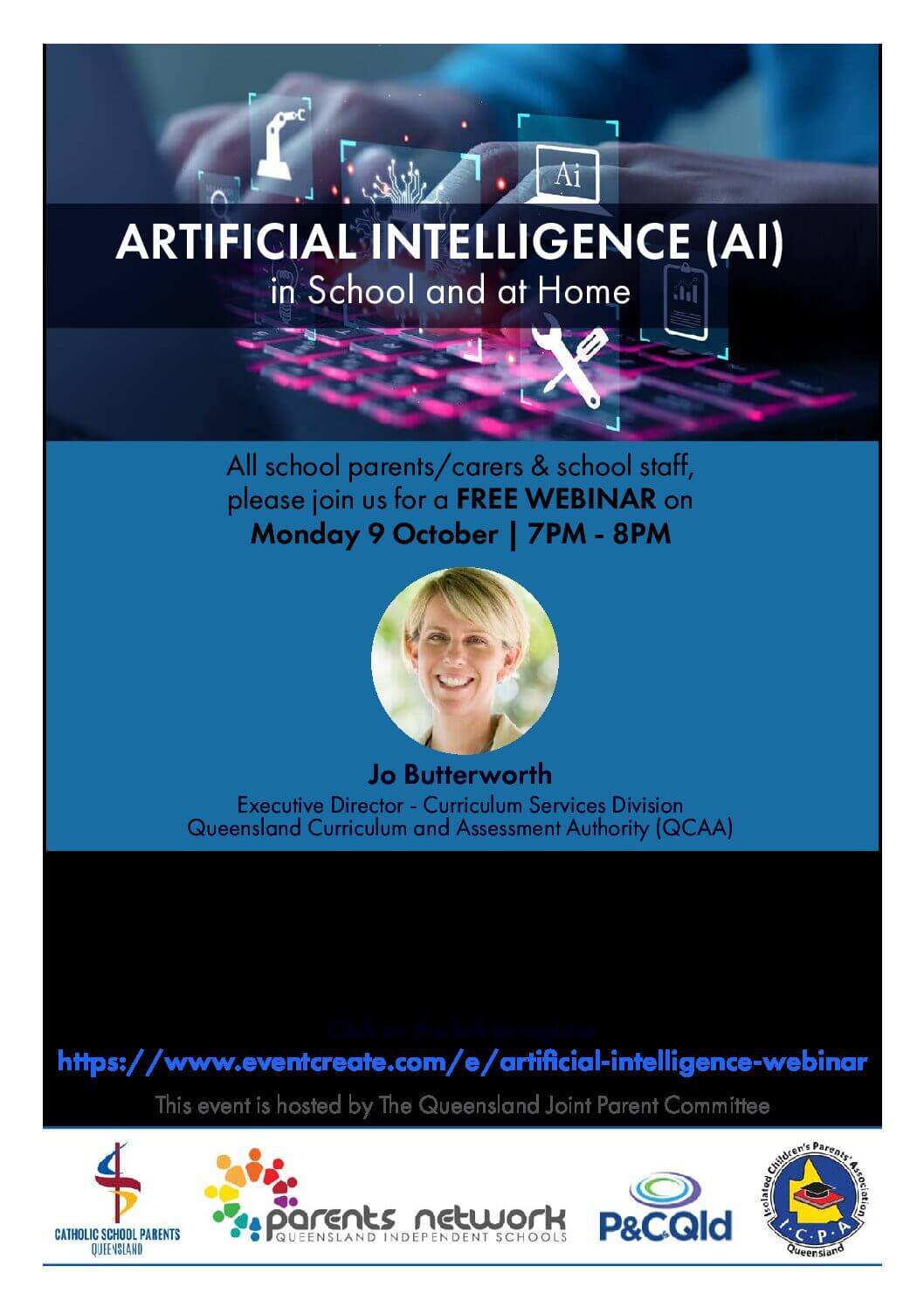The COVID-19 crisis has provided independent schools with the perfect opportunity to “customise” education to better meet the evolving needs of their families and communities, a provocative new report has argued.
Independent Schools Queensland (ISQ) commissioned respected University of Melbourne academics Professor Jim Watterston – former Director-General of the Queensland Department of Education – and Professor Yong Zhao to consider the future of schooling and the opportunities for change as a result of the pandemic.
In their issues paper, titled A Catalyst for Change released today, Professors Watterston and Zhao proposed a rethink of six key areas of education, including the purpose of schooling, the structure of the Australian Curriculum, student assessment, digital literacy and the traditional roles of teachers and students.
As well as calling for parents to be involved in discussing reforms, the academics affirmed the importance of parents and teachers working collaboratively for the benefit of students.
“Reports from across the country during the COVID-19 home schooling period have not just been about enhanced respect for teachers, as many principals have reported that teaching staff have also gained a greater appreciation for the roles of parents and caregivers who have diligently facilitated and supported students learning during periods of lockdown,” they wrote.
“The notion of teachers and parents working together as partners in learning is particularly relevant both within, and outside of the school to ensure that students can successfully negotiate and thrive in the digital world.”
Pandemic proved traditional education model can be changed
Professors Watterston and Zhao said reforms were possible.
“The one incredible educational revelation that has been observed during this challenging time has been that when all staff are engaged and there is a compelling reason, we can collectively change the traditional schooling experience, for better or worse, virtually overnight,” they wrote.
“We need to use the new-found COVID-19 inspired capacity of the profession to take ownership and implement the reforms that were required long before we had to adapt our thinking to the challenges of a pandemic.”
Professors Waterston and Zhao said they believed the “independent school sector, free of the systemic constraints in other sectors, is well placed to lead the nation in this quest”.
Parents a key part of the equation
The authors spotlighted the importance of parents in devising solutions and strongly encouraged “all schools in association with students and parents to rethink what will really matter to students in the future”.
“We owe it to our emerging generations to create a cutting-edge educational experience that will enable everyone to thrive in an increasingly changing, challenging and complex world,” they wrote.
Independent schools had the autonomy and thus greater freedom than schools in other sectors to innovate “and to create new possibilities for their students through the strong engagement of parents as co-designers of bespoke education reforms”.
Now is the perfect time
In their concluding comments, the Professors urged schools not to waste the crisis.
“Despite the enormous time and energy that all teachers have invested during recent months as traditional education delivery has been turned on its head, there has never been a better opportunity your school to better meet the evolving needs of your community.”
ISQ Executive Director David Robertson said A Catalyst for Change was the latest issues paper in ISQ’s Our Schools – Our Future policy reform series.
Mr Robertson said the last comprehensive State Government-led reform of school education in Queensland was undertaken in 2002 which resulted in the introduction of the full-time Prep Year and laws that required students to be “learning or earning” until they were 17.
“In the intervening 18 years since the Education and Training Reforms for the Future White Paper, we have seen the introduction of Facebook (2004), YouTube (2005), the iPhone (2007), iPad (2010), artificial intelligence and improved internet speeds,” Mr Robertson said.
“How students learn, access information and socialise have changed significantly. The rapid move to home learning during the pandemic has also raised questions about where and how learning happens which is just as much a question for legislators as it is for educators,” he said.
“Many independent schools have affirmed their intentions to take the momentum, goodwill and great ideas that emerged out of the home learning period and build on them to improve teaching and learning for their students.”




